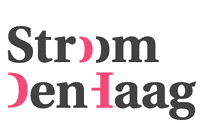Winy Maas met 'The Why Factory', animatie: Wieland & Gouwens
Foodprint: Special Assignments
Presentation in the Foodprint Exhibition: 26 June to 23 August , 2009
Discussion during the Foodprint Symposium on 26 June, 2009
Location: BINK36, Binckhorstlaan 36, The Hague
Foodprint weblog (mainly in Dutch)
Various spatial challenges are emerging in and around the city, where the perspective of food and its cultivation offers innovative opportunities for user-friendly and attractive green spaces. This also boosts local small-scale businesses, contributes to a sustainable city, and connects urban and rural areas.
'Park Supermarket'
Van Bergen Kolpa Architecten, in collaboration with Vincent Kuypers (Alterra Wageningen), is creating a spatial model for a Landscape Supermarket. In a well-accessible location in Midden-Delfland, products typically found in a modern supermarket, such as wild rice, olives, avocados, and coffee, are grown and sold based on soil types and climate zones. The open-air supermarket offers not only a diverse range of products for city dwellers but also a unique landscape to enjoy recreational activities.
'City Pig'
Winy Maas with The Why Factory (TU Delft)
As part of the 'Foodprint' program, Stroom Den Haag is working on a design for a socially and ecologically responsible and profitable pig farm in the city. This is being done in collaboration with the Pig Farming Department of LTO Netherlands and InnovatieNetwerk. The design study is being carried out by architect Winy Maas with designers from The Why Factory (TU Delft).
Pigs and chickens are currently taboo in the city. Livestock farming is seen as something for the countryside, not the city. Or so it seems. However, most meat consumers live in the city. Is livestock farming and meat production in a city conceivable? How could this benefit urban residents, entrepreneurs, and – yes – the animals?
The design study by Winy Maas and The Why Factory is the first step toward creating an integrated urban livestock farming system. By thinking 'out of the box' and connecting the farm ecologically, socially, and economically with the city, Stroom, the Pig Farming Department of LTO Netherlands, and InnovatieNetwerk aim to give new direction to urban design and food production.
Currently, the idea is for a farm with about 200 sows, which would be literally transparent and use modern ecological techniques in energy use. A potential location for this 'urban agro-cluster' is the Binckhorst, which is still in development as an inner-city industrial area and is well-suited as a test site.





